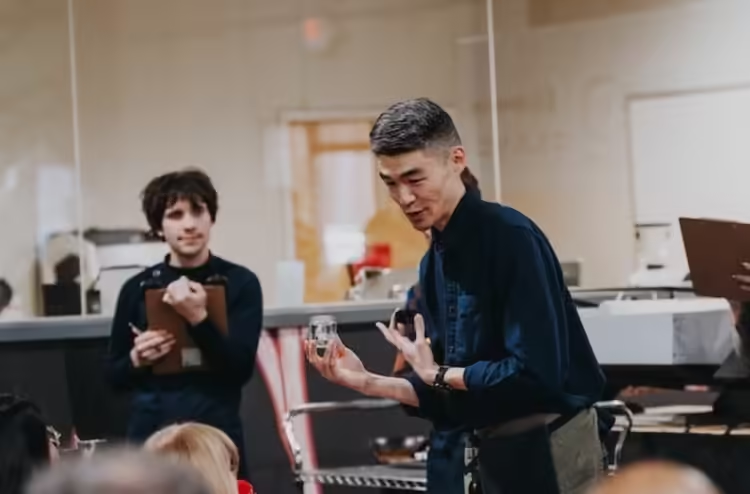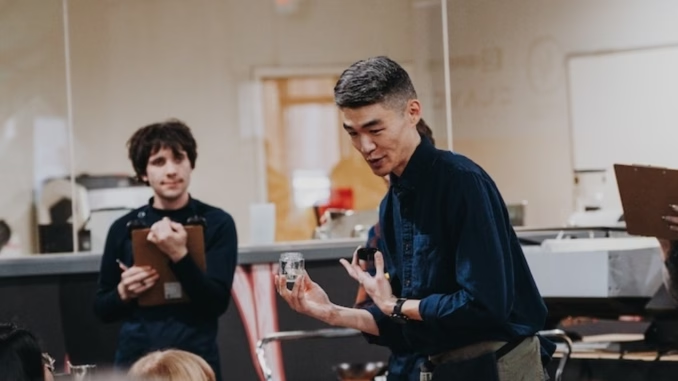
In his sixth 12 months competing and fourth time within the finals, Kay Cheon broke by to turn into the latest U.S. Barista Champion.
BY CHRIS RYAN
BARISTA MAGAZINE ONLINE
Featured picture courtesy of Onyx Espresso Lab
In 2018, as a younger espresso skilled working at Santa Barbara, Calif.’s Dune Espresso Roasters, Kay Cheon shocked himself. Participating in his first U.S. Barista Championship (USBC) season, he reached the finals of the nationwide competitors, finally inserting third.
Within the ensuing years, Kay has been a mainstay of competitors, and a dependable entrant into the USBC finals—earlier than 2025, he had competed in 5 seasons and reached three USBC finals. He has additionally taken strategic breaks from competitors, together with judging on the 2022 USBC in Boston, which Kay describes as what he wanted in that second to develop as a competitor. “Having an understanding of what it feels wish to be sitting on the judges’ desk is so essential to have the ability to create a robust presentation,” he says.
Kay’s technique and perseverance paid off on the 2025 USBC, which came about March 6-9 in Raleigh, N.C. Utilizing two coffees—a Gesha and an Ombligon—and structuring his routine across the constructing blocks of taste, Kay, who continues to work for and symbolize Dune Espresso Roasters, earned the title of 2025 U.S. Barista Champion. He’ll now advance to the World Barista Championship (WBC), happening October 17-21 in Milan, Italy.
Within the first installment of this two-part interview, we speak to Kay about why barista competitors pursuits him, how he constructed this 12 months’s successful routine, and extra.
Chris Ryan: First, how did you come to barista competitors, and what have been your early years like?
Kay Cheon: Earlier than I started competing, I knew barista competitors existed as a result of there have been opponents in my neighborhood that I knew of, or had seen their preparation. Once I bought to Dune, there was additionally a historical past of competitors participation, and so lengthy earlier than I ever determined to compete myself, I understood that competitors was on the market and that it was such a excessive degree of engagement with our trade.
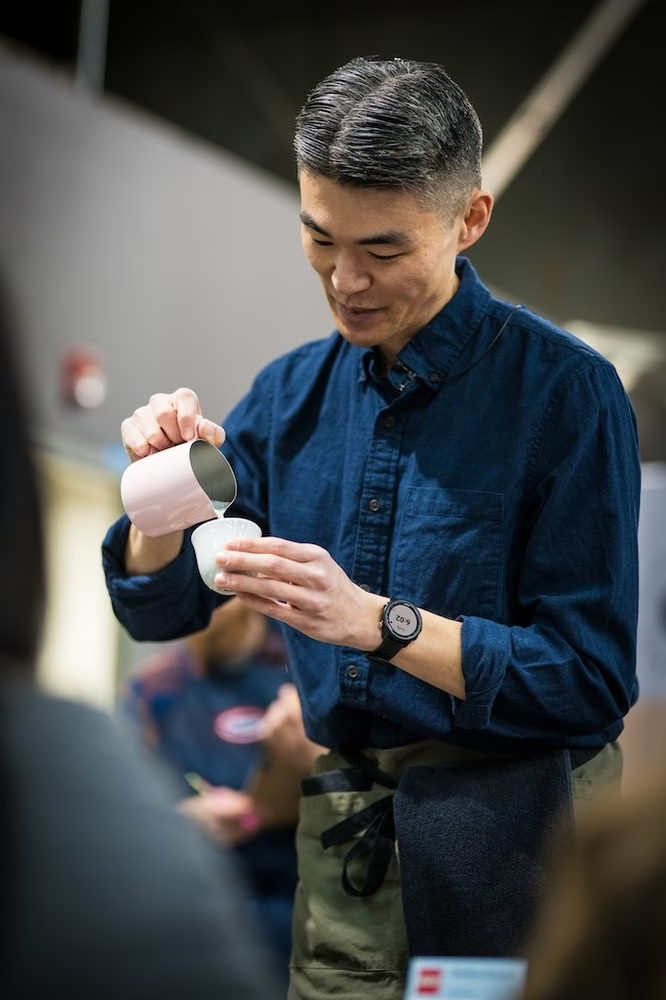
The primary 12 months that I competed in 2018, I had no expectations of how nicely I might do, and all I hoped to get out of competing was to push myself to study new issues and develop my understanding of espresso. What I didn’t notice earlier than that first 12 months was additionally the neighborhood and construction that it takes for competitors to exist, to not point out all the studying and progress that comes with constructing a presentation for the nationwide stage.
This 12 months, you have been the uncommon competitor to roast their very own coffees for competitors. Are you able to focus on the choice to do this, what it seemed like in follow, and the way it finally benefited your routine?
I’ve roasted coffees that I’ve served on stage earlier than, however this was the primary 12 months that I sourced and profiled all the things myself. A part of the explanation was that I needed to make the most of a Stronghold roaster, which is a machine that Dune doesn’t have within the roastery. I used to be ready to make use of a pal’s S7Pro roaster, nevertheless it did imply driving forwards and backwards between Santa Barbara and L.A. (the place the machine was positioned).
I knew I needed to make the most of the Stronghold in my preparation for a number of causes: the batch dimension is an enormous benefit for competitors coffees that sometimes are smaller lot sizes, but additionally all the management the Stronghold offers you in the course of the roasting course of. There have been quite a lot of new variables that I needed to study, and I’m actually grateful to Aaron Zhao and Ben Put for his or her assist alongside the way in which in roasting.
Due to roasting on the Stronghold, I used to be in a position to carry a number of totally different roasts and batches to USBC, which gave us the power to fine-tune the espresso as soon as we arrived to Raleigh. I really had cupped all the roasts that I might be bringing earlier than we left, and I had a sense that there was one roast that was tasting the perfect, and that we’d be capable of put it aside for finals if we made it by, which after all meant we have been taking a threat if we didn’t use that espresso in semifinals and didn’t make it to finals. Fortunately, it labored out.
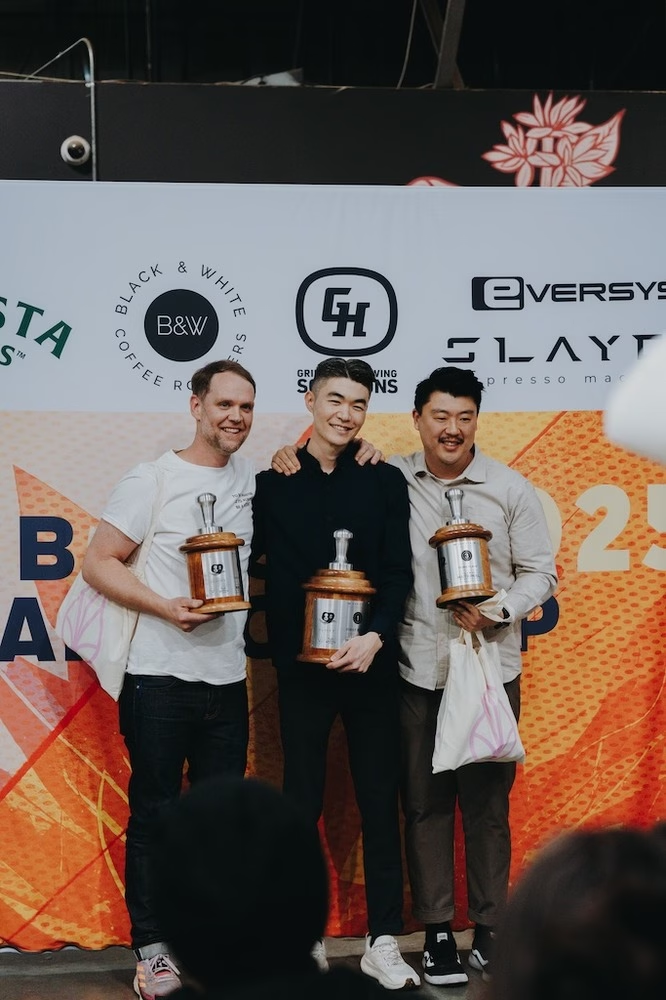

Are you able to speak about your espresso decisions this 12 months? I do know the Gesha from Savage Coffees has traditionally carried out nicely in competitors. The Ombligon selection, which you sourced from El Diviso, appears much less frequent in comps, however I do know Frank La received with it final 12 months. Why these two coffees for this routine?
I actually try to style as many coffees as I probably can on a regular basis, each occupied with coffees with competitors potential, but additionally as a result of I feel that’s one of the simplest ways to study. Starting in April 2024, I began tasting and pattern roasting all the coffees I may get my fingers on—there are in all probability over 200 tons in a spreadsheet that we tried. There have been a number of coffees that actually stood out to us alongside the way in which that we may have competed with, however with the constructing blocks presentation, serving each the El Diviso and Finca Deborah got here collectively in a very wonderful means.
I really had some hesitation round competing with the Ombligon, given Frank’s success with it final 12 months, and so I tasted that espresso a number of instances. What satisfied me is how thrilling that espresso was to somebody who hadn’t tasted it earlier than; it’s so distinct in taste, and I assumed that is likely to be a enjoyable expertise to get to share with the judges.
I spoke with Jamison (Savage, founding father of Savage Coffees) a number of instances, and there’s a perspective that we shared: that your solely competitors is your self, which I actually aligned with. The coffees from Savage are unimaginable, and tasting by all the totally different profiles, it grew to become obvious to me to select one thing that may work for my presentation and what I needed to share. I served a pure yeast-inoculated Gesha at USBC, which had a very unimaginable tactile high quality.
Keep tuned for half two of this interview later this week, the place we’ll speak to Kay about successful the USBC, how he’s approaching the upcoming WBC, and extra.
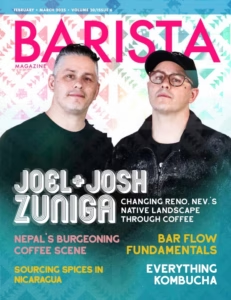

Subscribe and Extra!
As at all times, you may learn Barista Journal in paper or digital format. Subscribe right here to get your personal hardcopy of every subject delivered. Learn the February + March 2025 subject free of charge with our digital version.
And for greater than three years’ value of points, go to our digital version archives right here.
